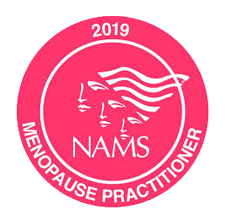Other Causes of Sexual Difficulties
Beyond the more well-known medical issues such as Low T, ED or PE, there are other causes of sexual difficulties facing men.
Among the more common of those are issues stemming from prostate surgery or side effects of medication.
At the Northwest Institute for Healthy Sexuality, we take a multi-disciplinary approach to sexual wellness, using experts from urology, natural medicine, psychology and more to help you get back to normal life.
Medications – What medications may cause sexual side effects?
While it’s difficult to tell how a certain medication will affect an individual, the following types of drugs might lower libido, impair orgasm, or reduce erectile function in some people:
- Antidepressants include selective serotonin reuptake inhibitors (SSRIs) and tricyclic antidepressants.
- Antipsychotics are prescribed for mental health conditions, such as schizophrenia and bipolar disorder.
- Benzodiazepines may be taken for anxiety and insomnia, among other conditions.
- Beta-blockers are used to lower blood pressure. They might also be prescribed for people with glaucoma and migraines.
- Estrogen-containing drugs may lower libido in men.
- Finasteride is the main ingredient in two drugs: Proscar and Propecia. Proscar is used to treat benign prostatic hyperplasia (BPH) – an enlarged prostate.
- Propecia is prescribed for men with male-pattern hair loss.
- Opioids, like morphine and oxycodone, are strong painkillers that can decrease a person’s sex drive.
- Oral contraceptives (birth control pills) can influence a woman’s hormones and, consequently, her libido, by increasing binding globulins which reduce the availability of circulating testosterone levels.
Please note that this is not an exhaustive list.
Patients who think their medications are affecting their libido should talk to their doctor or a sexual medicine specialist. Sometimes, changing either the dose or the medication can help. For example, newer antidepressants and antipsychotics that have little effect on libido are now available. Other medications added to current regime can sometimes offset sexual side effects. Cognitive behavioral strategies to improve sexual function are often indicated. There are small studies that suggest the addition of testosterone may improve sexual side effects from medications in women, or undergoing acupuncture therapy.
It’s important that any changes be made under a doctor’s guidance. Many drugs cannot be stopped abruptly and need a weaning period, which should only be conducted under a physicians guidance.
Also, a doctor can help evaluate other factors that might be contributing to low sex drive, such as hormonal changes, stress, or depression.
It’s important to note that testosterone contributes to sex drive in both men and women, but some drugs lower libido without affecting testosterone levels but instead interrupting neurotransmitters in the brain that affect sexual function.
Prostate Surgery – Sexual rehabilitation after prostate surgery
Prostatectomy is a procedure that involves removing a man’s prostate gland. A radical prostatectomy is an operation to remove the prostate gland and some of the tissue around it. Radical prostatectomy (RP) in any form (open, laparoscopic, or robotic) is the most frequently performed procedure for patients with localized prostate cancer and who have a life expectancy greater than 10 years.
Erectile dysfunction (ED) is one of the complications associated with pelvic surgery. The prevalence of erectile dysfunction as a complication following pelvic surgery, especially radical prostatectomy, ranges from 25 to 100 percent. Sexual dysfunction that develops after prostate surgery can have a negative impact on both sexual and overall quality of life.
Advances in the knowledge of pelvic anatomy and pathological mechanisms have led to a refinement of pelvic surgical techniques, with attention to the main structures that if damaged compromise erectile function. These improvements resulted in lower postoperative ED rates and better erectile recovery, especially in patients undergoing radical prostatectomy.
Penile rehabilitation is defined as the use of any drug or device at or after RP to maximize erectile function recovery. Pharmacological therapy is effective for some men after having their prostate removed to improve erectile function. Sildenafil (Viagra) is the drug that has been studied most extensively men having had their prostate removed. Response rates to sildenafil after surgery range from 10 to 76 percent in improving sexual response.
For men who do not respond well to erectile medication, penis injections known as intracorporeal injections (ICIs) with erectile medications are effective treatments for ED. Success, defined by the ability to engage in sexual intercourse with a hard erection, is often achieved in as many as 94.6 percent of patients who have had a prostate removal procedure.
Vacuum therapy (VT) utilizes negative pressure to increase the blood inflow to the penis and improve erections. Vacuum constriction device are sometimes used with the aid of an external constricting ring which is placed at the base of penis to prevent blood outflow, maintaining the erection for sexual intercourse.
Maintaining sexual satisfaction and overall quality of life after prostate surgery is an important consideration for all men and their partners. Although sexual dysfunction may not be a first concern as surgery for prostate cancer is considered, it is probably the single most common long-term problem encountered after open or robotic surgery. Our sexual rehabilitation approach is based on research for both prostate cancer surgery and sexual medicine.
We are excited to have the opportunity to help with this vitally important challenge, and we are dedicated to helping you retain your sexual function after your prostate surgery.
Contact Us
13126 120th Ave NE
Kirkland, WA 98034
Phone: (425) 398-9355
Fax: (833) 905-2316
Email: info@drserena.com
We serve patients Monday through Friday from 8 a.m. – 4:30 p.m.
COMPLETE THE FORM TO SEND US YOUR QUESTIONS OR COMMENTS
"*" indicates required fields




